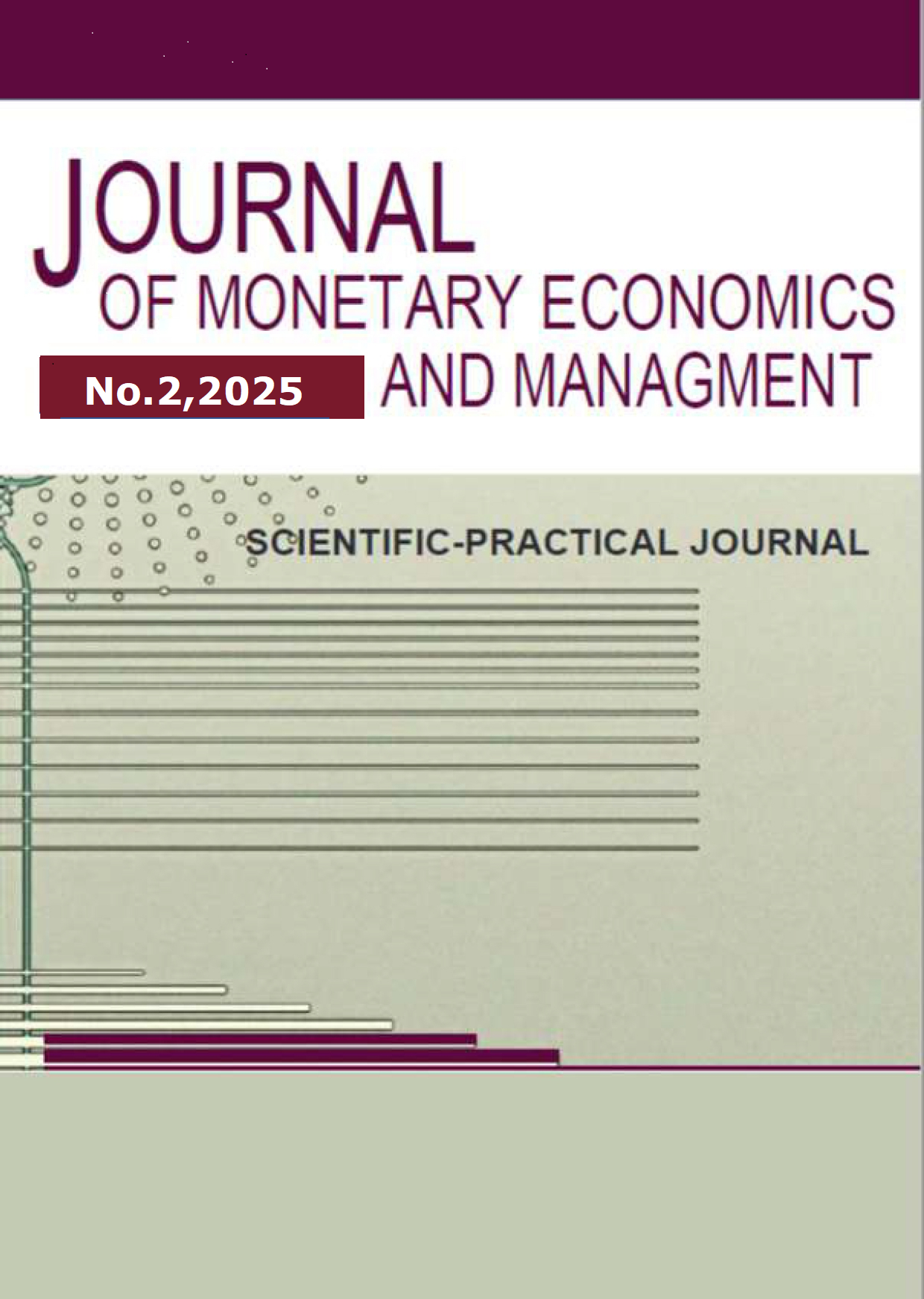graduate student
Decentralized financing may become an effective tool for developing financial markets in the Russian Federation in the foreseeable future, but its legitimization is associated with a number of threats and occurs in conditions of uncertainty. At the same time, postponing decisions in the development of the state's financial policy may lead to even greater costs associated with the departure of a promising segment of the new financial market into the shadows. The paper considers the opportunities and threats of decentralized financing development for traditional financial institutions in the Russian Federation. The study was prepared using the methods of conceptual, comparative analysis, financial and economic foresight. Results: the concept of decentralized financing is clarified, the differences between decentralized financing and digital financial assets previously legalized in Russia are considered. International experience of companies - traditional financial intermediaries - entering decentralized financing is presented, which is mainly in the nature of a test approbation of possibilities. Based on international statistics, an increase in the share of traditional financial companies in the volume of decentralized borrowings is shown. The article describes the diversity of development opportunities in the decentralized finance market for such classic financial intermediaries as commercial banks. Solutions for the development of financial policy in the Russian Federation are proposed, the need for legalization and the fastest possible construction of a sovereign infrastructure of decentralized finance with the safe involvement of traditional financial institutions is argued.
digitalization of finance, decentralized finance, traditional financial institutions, fintech risks, modern financial technologies, smart contracts, centralized financing
1. Digi Financing Comprehensive Review. – L.: McKinsey, 2024. – 89p.
2. Fintechs: A new paradigm of growth. – NY: McKinsey, 2023. – 17 p.
3. Pulse of Fintech H2’23. Global analysis of fintech funding. February 2024. – Amsterdam: KPMG, 2024. – 59 p.
4. Gramlich V. et al. A multivocal literature review of decentralized finance: Current knowledge and future research avenues //Electronic Markets. – 2023. – Vol. 33. – No. 1. – P. 11. DOI: https://doi.org/10.1007/s12525-023-00637-4
5. Pedersen N. Financial technology: case studies in Fintech innovation. – Kogan Page Publishers, 2020.
6. Zetzsche D. A., Arner D. W., Buckley R. P. Decentralized finance (defi) //Journal of Financial Regulation. – 2020. – Vol. 6. – P. 172-203. DOI: https://doi.org/10.1093/jfr/fjaa010
7. Kriptobirzha Binance zapretila rossiyanam p2p-operacii s lyubymi inostrannymi valyutami [Elektronnyy resurs]. URL: https://www.moscowtimes.io/2023/08/26/kriptobirzha-binance-zapretila-rossiyanam-operatsii-cherez-p2p-servis-s-lyubimi-inostrannimi-valyutami-a53096 (data obrascheniya 25.10.2024).
8. Yan'lyan S. Decentralizovannye finansy (defi): sovremennye tendencii i problemy razvitiya //Innovacii i investicii. – 2023. – №. 8. – S. 229–231.
9. Makarov I. et al. Cryptocurrencies and Decentralized Finance. – Bank for International Settlements, 2022. – No 1061. Handle: RePEc:bis:biswps:1061
10. Nadler M., Bekemeier F., Schär F. DeFi risk transfer: Towards a fully decentralized insurance protocol //2023 IEEE international conference on blockchain and cryptocurrency (ICBC). – IEEE, 2023. – R. 1-9. DOI: https://doi.org/10.1109/ICBC56567.2023.10174937
11. Aquilina M., Frost J., Schrimpf A. Decentralized finance (DeFi): A functional approach //Journal of Financial Regulation. – 2024. – Vol. 10. – No. 1. – P. 1-27. DOI: https://doi.org/10.1093/jfr/fjad013
12. Alt R., Fridgen G., Chang Y. The future of fintech—Towards ubiquitous financial services //Electronic Markets. – 2024. – Vol. 34. – No. 1. – P. 3. DOI: https://doi.org/10.1007/s12525-023-00687-8
13. Katsamakas E., Sánchez-Cartas J. M. A Computational Model of the Effects of Borrower Default on the Stability of P2P Lending Platforms //Available at SSRN 4803046. – 2024. DOI: https://doi.org/10.1007/s40822-024-00280-0
14. Liang S. The future of finance: fintech and digital transformation //Highlights in Business, Economics and Management. – 2023. – Vol. 15. – P. 20-26. DOI: https://doi.org/10.54097/hbem.v15i.9222
15. Mehta P. et al. Unravelling FinTech Lending: Risks, Transparency and Sustainable Growth in Modern India //2023 IEEE International Conference on Technology Management, Operations and Decisions (ICTMOD). – IEEE, 2023. – P. 1-7. DOI: https://doi.org/10.1109/ICTMOD59086.2023.10438141
16. Qian M. et al. Alternative financial institutions in China //Research Handbook on Alternative Finance. – 2024. – P. 213-249. DOI: https://doi.org/10.4337/9781800370494.00019
17. Xu J., Vadgama N. From banks to defi: the evolution of the lending market //Enabling the Internet of Value: How Blockchain Connects Global Businesses. – 2022. – P. 53-66. DOI: https://doi.org/10.1007/978-3-030-78184-2_6
18. Yin W. et al. Stacking ensemble method for personal credit risk assessment in Peer-to-Peer lending //Applied Soft Computing. – 2023. – Vol. 142. – P. 110302. DOI: https://doi.org/10.1016/j.asoc.2023.110302
19. 6 predictions for fintech in 2024 // deVere Group [E-Source]. URL: https://www.devere-group.com/6-predictions-for-fintech-in-2024 (data obrascheniya 01.10.2024).










